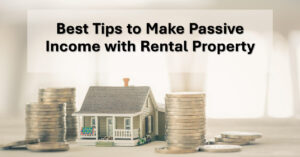Are you looking for a smart place to invest your money in real estate? Well, let's cut to the chase – Birmingham, Alabama is shaping up to be a prime spot for rental property investments in 2025. Forget the hype; this isn’t about throwing darts at a map. Birmingham's got real, tangible reasons that make it a compelling choice, and I'm here to break them down for you. I've been keeping an eye on this market for a while now, and honestly, the signs are pretty encouraging.
Birmingham Real Estate Investing: Hot Investor Properties in 2025
Why Birmingham is Catching Investors' Eyes
First off, Birmingham isn't just some sleepy Southern town anymore. It's got a buzz, and it's a buzz that's attracting a diverse crowd of residents, which is the lifeblood of any good rental market. We’re talking about a city that's home to major institutions in law, medicine, nursing, and engineering—that means a steady flow of students, professionals, and faculty needing housing. This creates consistent demand for rentals. That’s not all folks. Here’s a rundown of why Birmingham’s market is so appealing:
- Strong Economic Foundation: Birmingham’s economy isn’t reliant on one single industry. It's got a diversified base, which means more stability and less vulnerability to economic downturns.
- Education & Healthcare Hub: As mentioned, the concentration of universities and medical facilities is huge. These sectors aren't going anywhere, ensuring a reliable stream of renters.
- Affordable Entry Point: Compared to other major US cities, Birmingham's property prices are still relatively affordable, allowing for higher potential returns on investment.
- Low Property Taxes: Birmingham has been ranked as having some of the lowest property taxes in the US. This means that owners get to keep more of their earnings.
- Appreciation Potential: The numbers don't lie. Birmingham has seen considerable appreciation over the years, and it's projected to continue.
- Thriving Culture Scene: The city has a growing arts, food, and entertainment scene that continues to attract people who want to live in a vibrant city.
- World Games Winner: Being the winner of the 2021 World Games put Birmingham on the map, further bolstering its reputation as a dynamic and growing city.
The Numbers Don't Lie: Birmingham's Appreciation History
Let's dive into some specific data, because this is where things get interesting. It’s one thing to say “Birmingham is doing well,” but another to see the numbers that support it. Here’s a look at the appreciation rates:
| TIME PERIOD | TOTAL APPRECIATION | AVG. ANNUAL RATE | COMPARED TO AL* | COMPARED TO AMERICA* |
|---|---|---|---|---|
| Latest Quarter (2024 Q3-2024 Q4) | 1.03% | 4.20% | 6 | 3 |
| Last 12 Months (2023 Q4-2024 Q4) | 6.03% | 6.03% | 6 | 5 |
| Last 2 Years (2022 Q4-2024 Q4) | 11.09% | 5.40% | 6 | 5 |
| Last 5 Years (2019 Q4-2024 Q4) | 51.66% | 8.69% | 7 | 5 |
| Last 10 Years (2014 Q4-2024 Q4) | 87.86% | 6.51% | 6 | 4 |
| Since 2000 (Q1-2024 Q4) | 138.87% | 3.69% | 8 | 4 |
*10 is the highest.
As you can see, Birmingham’s real estate market has been consistently appreciating, especially over the last five years. The average annual rate of 8.69% in the past 5 years is pretty significant, and it outperforms the national average. This shows the increasing value of properties in the area. This appreciation isn’t just a flash in the pan. The forecast for the next three years is also solid, with an expected appreciation of around 10.6%. That means the value of your investment should continue to grow.
The Magic of High Capitalization Rates
One of the biggest draws for investors is Birmingham's impressive capitalization rates (or cap rates). Now, if you’re new to real estate investing, cap rate is just a simple measure of a property’s profitability. A higher cap rate means more income relative to the property's price. I’ve seen some properties in Birmingham boasting cap rates up to 15%. Let me tell you, in this market, that's pretty remarkable. It means that if you're buying rental property in Birmingham, you have a much better chance of seeing a positive return quickly. It is a game changer!
Hot Rental Properties Available Now (and where to look)
Okay, so where should you focus your search? Here are a few deals that Norada Real Estate Investments has to offer, keeping in mind that things can change quickly in real estate:
| Property Address | Bedrooms | Sqft | Bathrooms | Parking | Purchase Price | Rental Income | Year Built | Price/Sqft | Rent/Value Ratio | Neighborhood | Cap Rates | Cash Flow (NOI) |
|---|---|---|---|---|---|---|---|---|---|---|---|---|
| 6th Street NW, Birmingham | 3 | 1510 | 2 | 1 | $164,900 | $1,365 | 1968 | $110 | 0.8% | – | 7.1% | $978 |
| 13th Avenue NW, Center Point | 4 | 1444 | 1 | 1 | $156,900 | $1,265 | 1957 | $109 | 0.8% | B- | 7.2% | $937 |
| Woodland Circle, Odenville | 3 | 1400 | 2 | 1 | $243,000 | $1,590 | 2024 | $174 | 0.7% | A+ | 6.2% | $1,262 |
| Woodland Circle, Odenville | 3 | 1400 | 2 | 1 | $243,000 | $1,590 | 2024 | $174 | 0.7% | A+ | 6.2% | $1,262 |
| Woodland Circle, Odenville | 3 | 1400 | 2 | 1 | $243,000 | $1,590 | 2024 | $174 | 0.7% | A+ | 6.2% | $1,262 |
| Woodland Circle, Odenville | 3 | 1400 | 2 | 1 | $243,000 | $1,590 | 2024 | $174 | 0.7% | A+ | 6.2% | $1,262 |
| Woodland Circle, Odenville | 3 | 1400 | 2 | 1 | $243,000 | $1,590 | 2024 | $174 | 0.7% | A+ | 6.2% | $1,262 |
| Woodland Circle, Odenville | 3 | 1400 | 2 | 1 | $243,000 | $1,590 | 2024 | $174 | 0.7% | A+ | 6.2% | $1,262 |
| 6th St NW, Center Point | 3 | 1304 | 2 | 1 | $164,900 | $1,365 | 1968 | $127 | 0.8% | B- | 6.9% | $944 |
Here’s my take on these:
- 6th Street NW, Birmingham is a decent starter property in an established area, but the age of the property (built in 1968) may require future investments.
- 13th Avenue NW, Center Point provides great value for money, with an affordable price and a decent cap rate.
- Woodland Circle, Odenville offers newly built properties in a highly desirable A+ neighborhood. Although the price point is higher, the long-term prospects in this area are fantastic. I particularly like the fact that they're new construction, which often means fewer maintenance issues in the early years.
Invest in These Hot Birmingham Properties Before They’re Gone!
Exclusive Birmingham investment properties available—act fast before they sell out!
More new listings coming soon! Get early access to high-quality, cash-flowing turnkey rentals.
Speak with our expert investment counselors (No Obligation):
(800) 611-3060
My Recommendations for 2025
Based on my analysis, here are some things to consider if you plan on investing in Birmingham in 2025:
- Look Beyond Birmingham Proper: Areas like Center Point and Odenville are developing quickly and offering better investment opportunities right now. Don't be afraid to look outside the city center for hidden gems.
- Focus on Cash Flow: While appreciation is important, positive cash flow from rental income is key to a successful investment. Look for properties with solid rent-to-value ratios and strong cap rates. We have some newly listed hot investment properties for sale right now.
- Consider New Constructions: While older homes may be cheaper to purchase, newer constructions require less maintenance, and attract high quality tenants.
- Don't Forget the Neighborhood: A property in a great location is always easier to rent. Make sure you research the neighborhood thoroughly before making a decision. I like neighborhoods with good schools, parks and easy access to amenities.
- Be Quick, but be Smart: Good deals in Birmingham can be snatched up quickly. So, if you find something that meets your investment criteria, don't delay too long. But please, never compromise on due diligence.
Final Thoughts
Birmingham is a market that's not flashy, but it's a market that works. It's showing consistent growth, boasts high cap rates, and offers a relatively affordable way into real estate investment. I believe if you're strategic and do your homework, you could see excellent returns on your investment here in 2025. I am not one to hype any market but I think this is where the real opportunities lie.
Sure, there are always risks involved in any real estate investment. Market conditions can change. That is why I always recommend having a buffer. It’s important to do your due diligence and consult with real estate professionals.
But the fundamentals in Birmingham are strong, and the city's ongoing growth and development provide a promising outlook for rental property investors. Do your research, consider your investment goals, and get ready to see your investment grow!
Recommended Read:
- Real Estate Investing: Why Smart Investors Are Buying Now
- The Important Tax Benefits of Real Estate Investing
- 18 Best Real Estate Investing Books For Beginners
- 10 Tips to Be Successful in Real Estate Investing
- Risks of Real Estate Investing: What You Can Do About Them?
- What is Passive Real Estate Investing?
- Housing Market Predictions for Next 5 Years (2025-2029)
- Real Estate Forecast for the Next 5 Years: Future Predictions?



